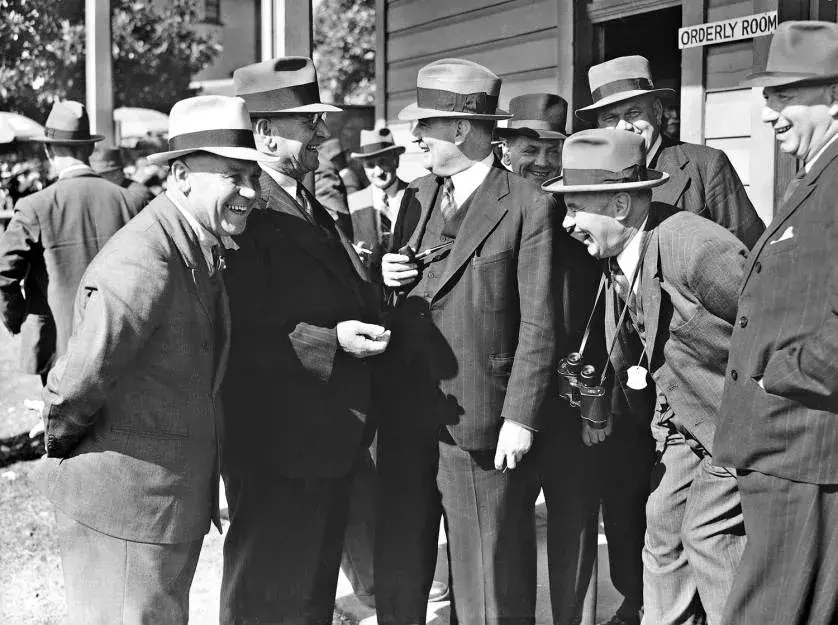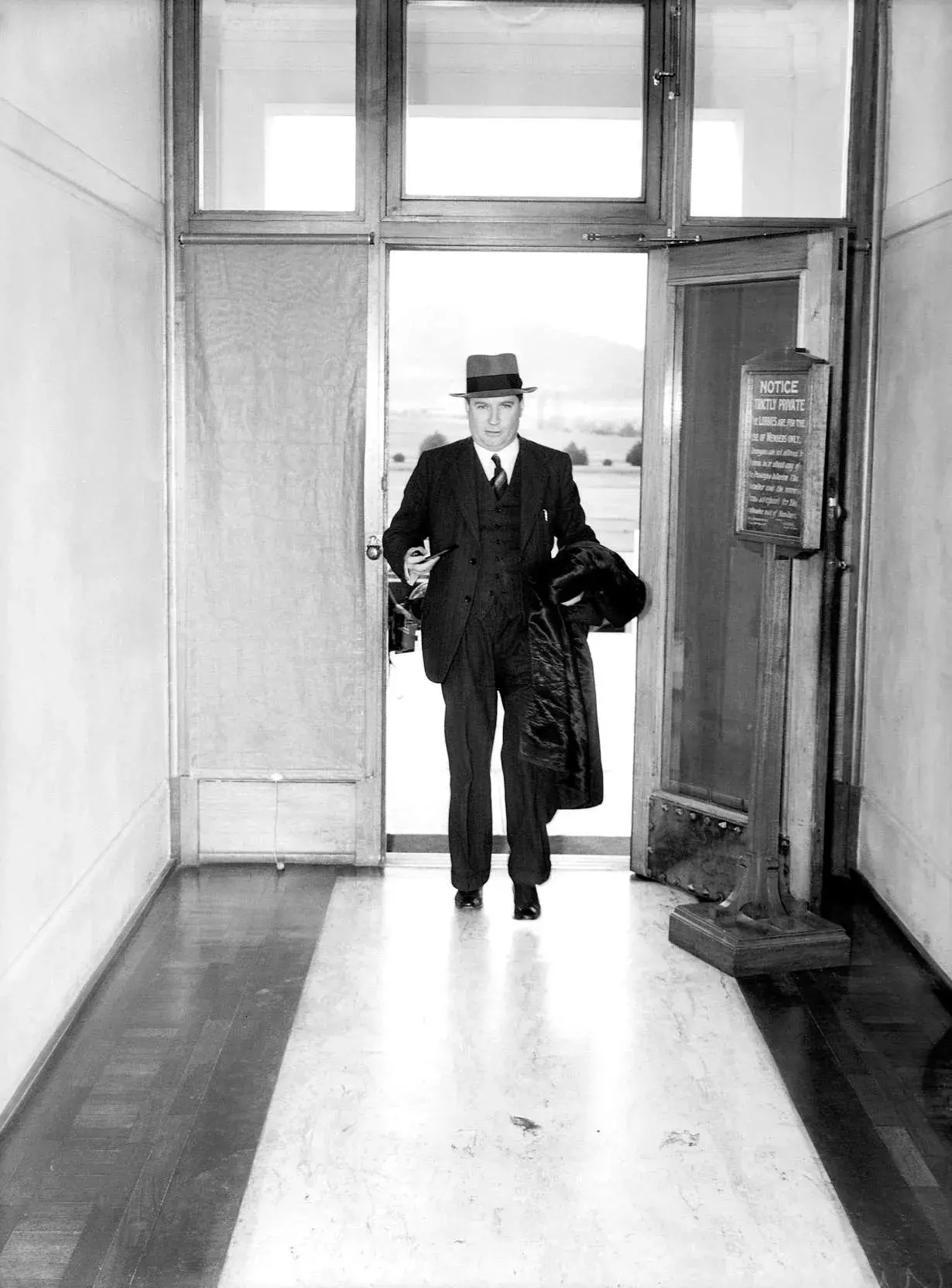ARTHUR FADDEN
Order of St Michael and St George (1951)
Arthur Fadden became Australia's 13th prime minister when he was elected leader of the United Australia/Country Party coalition following Robert Menzies' resignation in 1941.
13 April 1894
Ingham, Queensland
21 April 1973
Brisbane, Queensland
Ilma Fadden
Country
Photo: F J Halmarick/Fairfax
About
Arthur Fadden was considered one of the great characters of the Australian parliament, and built trust and rapport with colleagues across party lines. He used levity and wit to manage situations and strengthen relationships. Fadden believed in compromise and consensus, but not at the expense of core party and personal principles.

Photo: Fairfax
Fadden ran an accountancy firm and worked in local government and served in the Queensland parliament before venturing into federal politics, winning the seat of Kennedy in 1932. Redistribution thwarted Fadden's attempt to hold the seat in 1935.
Fadden's contribution to a conservative alternative to the United Australia Party led to the creation of the Queensland Country Party in 1936 and in December that year he won the seat of Darling Downs in a by-election.
In 1940, a Country Party leadership challenge resulted in a deadlock between Earle Page and John McEwen, with Fadden emerging as an acceptable compromise. Fadden also served as acting prime minister for four months in 1941 while Robert Menzies was abroad. In August that year, Menzies resigned.
With the UAP unable to put up a viable candidate, Fadden was elected leader of the Coalition despite being from the minor party. On 3 October 1941 Fadden lost the support of the two independents keeping the Coalition in power when they voted against his budget, and he left prime ministerial office the same day. He would, however, continue to serve extensively as acting prime minister while Menzies was overseas, some 676 days in all.
MILESTONES
Siege of Tobruk
From April to August 1941, around 14000 Australian soldiers were besieged in Tobruk by a German-Italian army. Tobruk was critical to the Allies' defence of Egypt and the Suez Canal.
Day of National Prayer
On 7 September 1941 a day of national prayer is held to mark the end of the second year at war. Prime Minister Fadden made a radio broadcast encouraging Australians to unite in 'the supreme task of defeating the forces of evil in the world.'
Failed Budget
On 3 October 1941, the Fadden Coalition government is defeated in a vote in the House of Representatives when Independents Arthur Coles and Alex Wilson side with the Opposition to reject Fadden's budget.
360° VIEW
Parliament
When Fadden assumed the role of prime minister, in addition to treasurer, he was leader of a party with 13 members in a parliament of 75.
The senior Coalition party, the United Australia Party, was in disarray following Menzies' resignation. The Coalition retained power through the support of independents Alexander Wilson and Arthur Coles.
Earlier Coalition governments had been attacked for their inadequate preparations for war and Fadden endured similar criticism. Attention was focused on the work to prepare the critical 1941-42 budget, and on whether all out war with Japan would eventuate.
The Fadden Government also took the opportunity to resume discussions on the value of 'power alcohol', a potential wartime petrol substitute, and a matter of great interest to sugar producers in Fadden's home state of Queensland.

Photo: Fairfax

